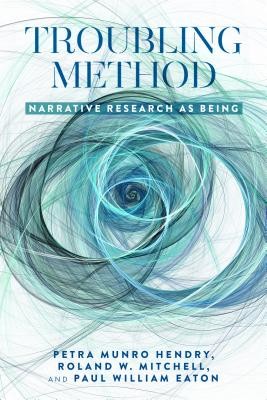
- We will send in 10–14 business days.
- Author: Roland Mitchell
- Publisher: Peter Lang Inc., International Academic Publishers
- ISBN-10: 1433155400
- ISBN-13: 9781433155406
- Format: 15.2 x 22.6 x 1.8 cm, softcover
- Language: English
- SAVE -10% with code: EXTRA
Reviews
Description
Troubling Method seeks to extract narrative inquiry from method. The shift to a post-humanist, post-qualitative moment is not just another stage in modernism that seeks to "improve" knowledge production, but is a shift to understanding research as an ontology, a way of being in the world, rather than a mode of production. Fundamental assumptions of research: method, data, analysis, and findings are deconstructed and reconfigured as a mode of relational intra-action.
Troubling Method is constructed as a dialogue between the three authors, focusing on their work as qualitative, narrative researchers. The authors revisit six previously published works in which they grapple with the contradictions and ironies of engaging in pragmatist, critical, and feminist qualitative research. After a lengthy introduction which problematizes "method," the book is divided into three sections, each with two chapters that are bracketed by an introduction to the issues discussed in the chapters and then a "dialogue interlude" in which the authors deliberate what makes possible the questions they are raising about method and narrative research. The three sections attend to the central premises of "narrative research as being" 1) relationships, 2) listening, and 3) unknowing.
Troubling Method is ideal for introductory or advanced courses in qualitative research, narrative inquiry, educational research, and those aimed at employing critical theories in qualitative and narrative inquiry.
EXTRA 10 % discount with code: EXTRA
The promotion ends in 16d.15:39:02
The discount code is valid when purchasing from 10 €. Discounts do not stack.
- Author: Roland Mitchell
- Publisher: Peter Lang Inc., International Academic Publishers
- ISBN-10: 1433155400
- ISBN-13: 9781433155406
- Format: 15.2 x 22.6 x 1.8 cm, softcover
- Language: English English
Troubling Method seeks to extract narrative inquiry from method. The shift to a post-humanist, post-qualitative moment is not just another stage in modernism that seeks to "improve" knowledge production, but is a shift to understanding research as an ontology, a way of being in the world, rather than a mode of production. Fundamental assumptions of research: method, data, analysis, and findings are deconstructed and reconfigured as a mode of relational intra-action.
Troubling Method is constructed as a dialogue between the three authors, focusing on their work as qualitative, narrative researchers. The authors revisit six previously published works in which they grapple with the contradictions and ironies of engaging in pragmatist, critical, and feminist qualitative research. After a lengthy introduction which problematizes "method," the book is divided into three sections, each with two chapters that are bracketed by an introduction to the issues discussed in the chapters and then a "dialogue interlude" in which the authors deliberate what makes possible the questions they are raising about method and narrative research. The three sections attend to the central premises of "narrative research as being" 1) relationships, 2) listening, and 3) unknowing.
Troubling Method is ideal for introductory or advanced courses in qualitative research, narrative inquiry, educational research, and those aimed at employing critical theories in qualitative and narrative inquiry.


Reviews